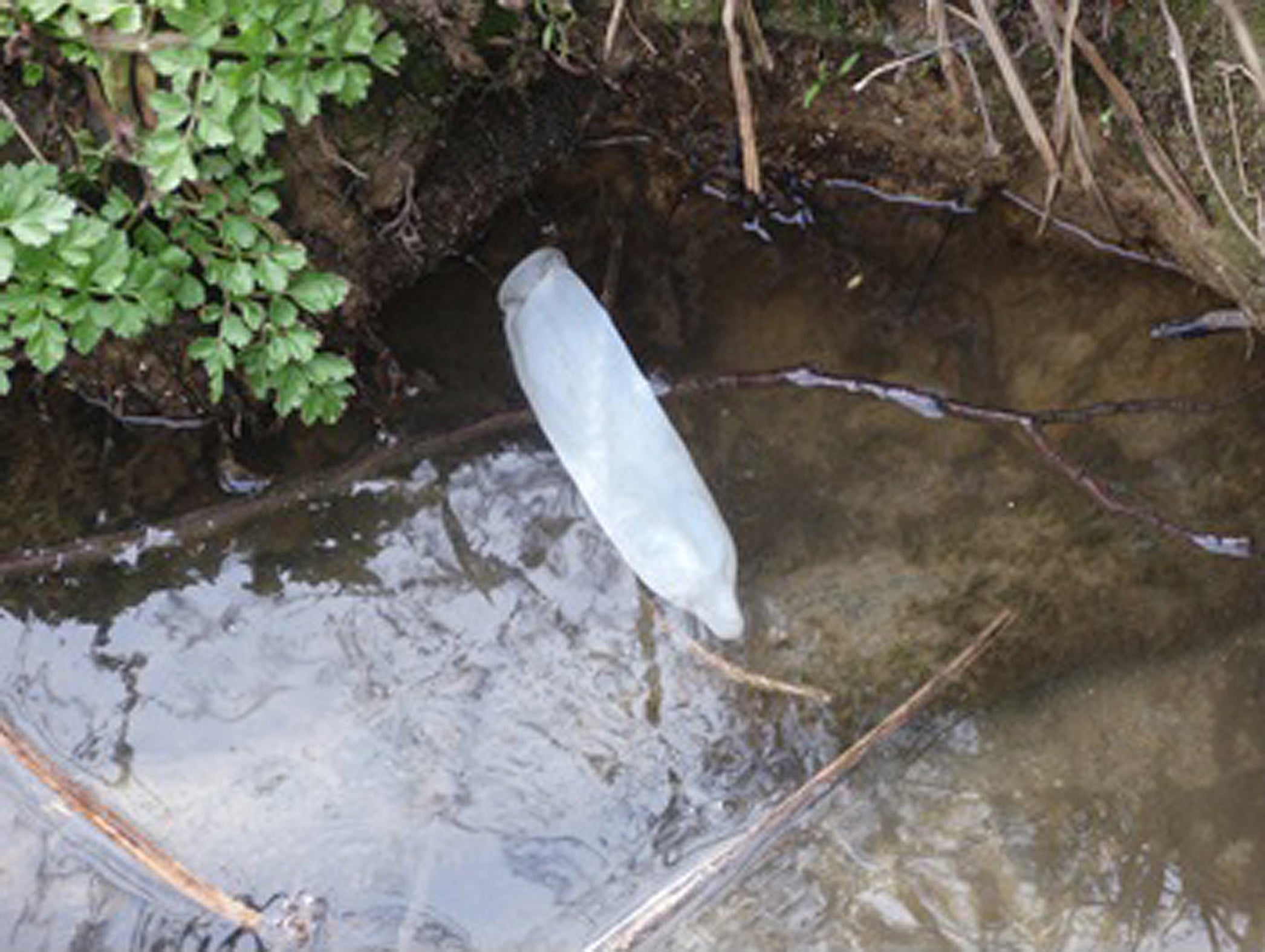Thames Water dumped ‘millions of litres’ of sewage in river killing more than 1,000 fish
Untreated sewage was pumped into River Mole near Crawley for six and a half hours, turning water black
Thames Water pumped an estimated "millions of litres" of undiluted sewage into rivers near Gatwick Airport causing the water to turn "black" and kill more than 1,000 fish, a court has heard.
At a sentencing at Lewes Crown Court on July 3, the court heard how there was a "significant and lengthy" period of polluting of the Gatwick Stream and River Mole between Crawley, in West Sussex, and Horley, in Surrey, on 11 October 2017.
Thames Water pleaded guilty on February 28 to four charges relating to polluting the rivers and is set to be sentenced by Judge Christine Laing KC on Tuesday, July 4.
It comes as the government scrambling to put together a plan to rescue the debt-ridden water firm over increasing fears it is set to go bust. The utility giant is struggling under a £14 billion debt pile accrued since it was privatised in 1989 and could now potentially be taken into public ownership if further investment is not found.
In the first day of the sentencing hearing on Monday, the court heard how a storm pump at Crawley Sewage Treatment Works site was unexpectedly diverting sewage to its storm tank for 21 hours and went "unnoticed".
From no alarm being raised, prosecuting Sailesh Mehta said the "best estimate" was that untreated sewage was spilling into the river from the tank for six and a half hours.
Eyewitness accounts read in court said how they saw the river turn "black" and "grey", with "huge numbers of dead fish" visible in the water.
It is understood nearly 1,400 dead fish from the rivers were recovered by Environment Agency officers following the incident.
Mr Mehta said there were "cumulative management deficiencies" at the company and that the sewage spill was an "accident waiting to happen".
He said: "The public expect high standards of a company such as this, simply because they are trusted to protect our environment.
"It's a heavy burden, they should be heavy and it's common ground they failed in carrying that out in this case."
Defending, Lisa Roberts KC said Thames Water expresses its "unreserved and sincere apology" for the incident, adding: "Put bluntly, it shouldn't have happened and Thames deeply regrets the event."
However, Ms Roberts rejected previous issues were to blame for the spillage but instead it was a "faulty switch" in the storm pump that caused the incident which "could not have reasonably been foreseen".

The expected fine will come as the water firm, which serves 15 million households across London and Thames Valley, faces concerns over its future amid mounting debt.
Thames Water's chief executive Sarah Bentley stepped down with immediate effect last week after she gave up her bonus due to the company's environmental performance.
According to Ms Roberts, a £33-million plan to improve the Crawley site was put in place since the incident with aims to complete it by the end of March 2025. New systems have also been rolled out across other Thames Water sites to prevent such incidents happening again.
Ms Bentley, whose leadership of the company began in 2020, in a statement said the eight-year plan was no "quick fix" but hoped to counter prior "poor management decisions, aggressive cost-cutting and decades of under-investment".
Thames Water also gave "voluntary reparation" to the South East Rivers Trust amounting to £1 million.
Thames Water has previously racked up £32.4 million in fines for pollution incidents in the Thames Valley and south west London from other prosecutions brought by the Environment Agency between 2017 and 2021.
The hearing continues.





